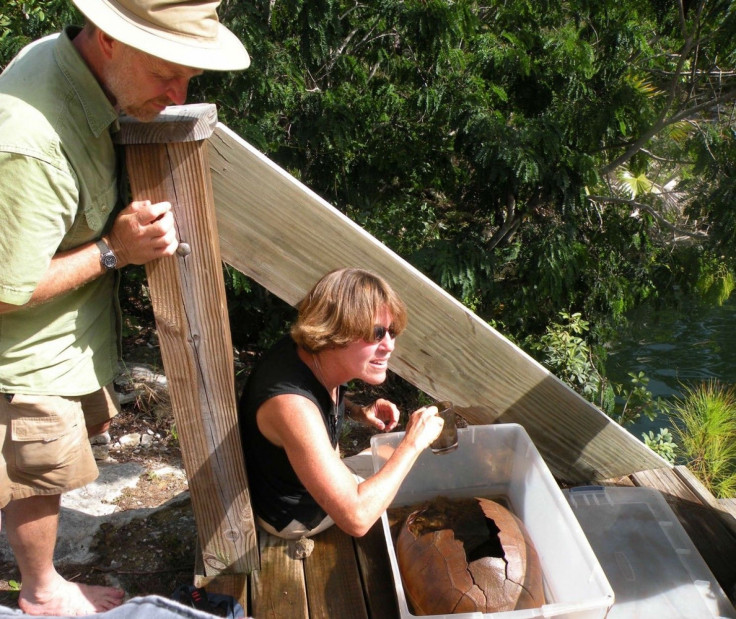Underwater animal fossils discovered by scuba divers in the Bahamas reveal key details about ice age extinctions

Global warming is generally considered a serious problem affecting the Earth's environment, climate and biodiversity. However, a recent analysis of the fossils recovered from the Bahamas shows that animal species might be more threatened by humans than climate change.
Professional research diver Brian Kakuk recovered a number of underwater fossils during his expedition in 2004. He inspected a region under the water in a Bahamian sinkhole, the toxicity of which prevented other divers from exploring.
Kakuk discovered that the area had well-preserved fossils of animals that once reigned the Great Abaco Island in the Bahamas. According to the study’s lead author, David Steadman, the analysis of the fossils “gave the researchers an unparalleled snapshot of what the Ice Age life would have been like on a Caribbean isle,” the Los Angeles Times reports.
The research team discovered complete, well-preserved skeletons of crocodiles and tortoises from the area. The specimens recovered from the area included 95 species of animals, 39 of which are now extinct. According to the study published in the Proceedings of the National Academy of Sciences, human encroachment caused more extinction than climate change.
During the study, the University of Florida researchers found that nearly 44 percent of the extinctions resulted due to climate change and a rise in the level of the sea. The rest or, 56 percent of the species, successfully adapted to the change and survived. However, humans led to their extinction in the last 1,000 years, the period when humans were known to inhabit Bahamas.
The researchers are now planning to study the traits of the animals that survived both climate change and human presence.
“The ones that have been resilient to both climate change and human presence — those are probably the next ones we should focus on because they’re the ones most likely to make it,” Steadman said, as quoted by the Washington Post.
Contact the writer at feedback@ibtimes.com.au, or let us know what you think below.





















